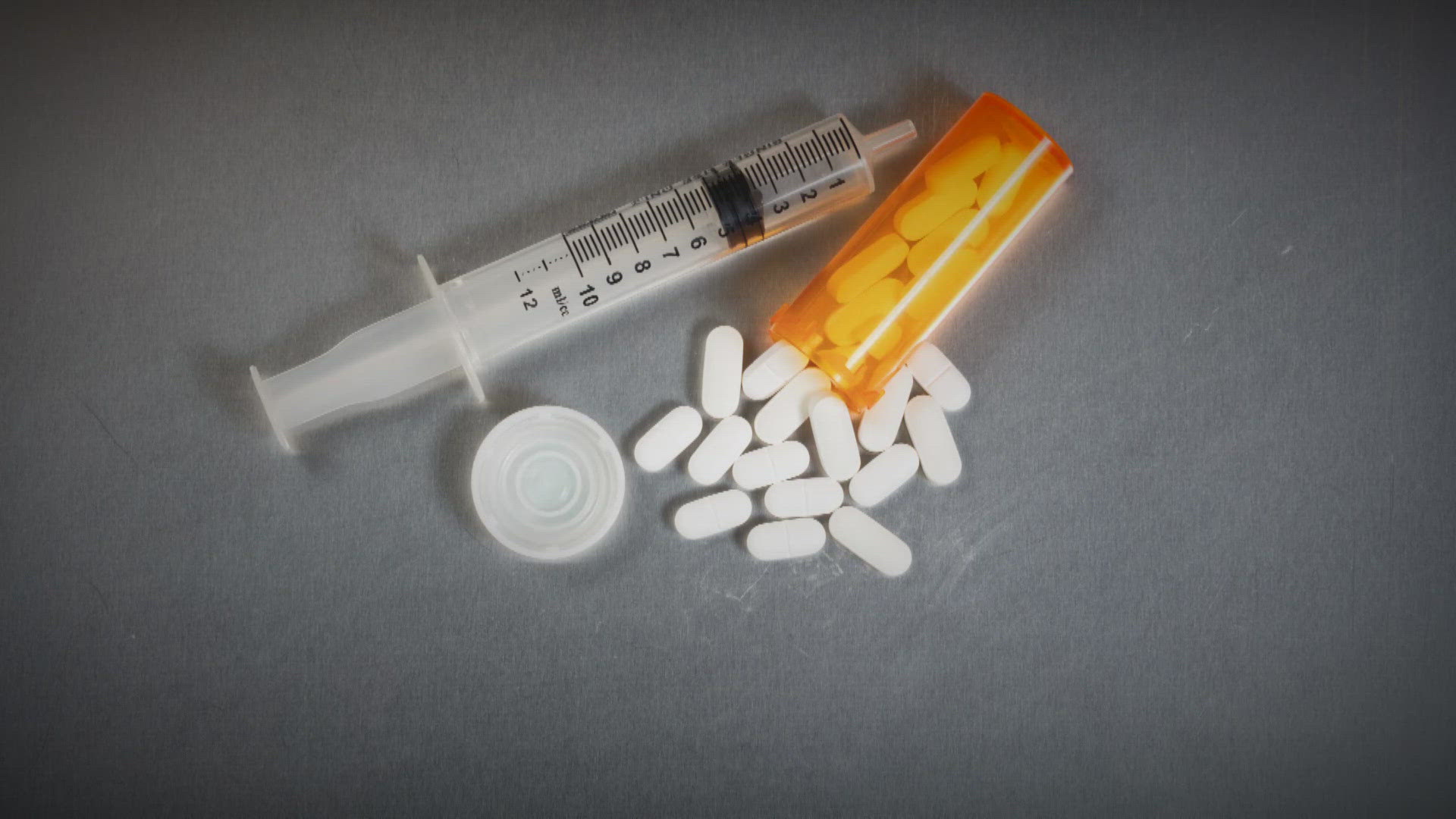ST. LOUIS — Overdose deaths in the United States have slightly declined for the first time in five years. But does this national data reflect what's happening in our local communities?
The I-Team spoke with a community advocate who sees the crisis firsthand. In the dead of night, the Rev. Ken McKoy walks the streets of Wells-Goodfellow, a neighborhood on the city's north side where 95% of residents are Black and more than a quarter of residents live below the poverty level.
He's armed not with judgment, but compassion, driven by his 31-year-old son's addiction to fentanyl.
"So for me to give up this work, in my mind would be just like me giving up on him," said McKoy, pastor at Progressive AME Zion Church.
Known as the "pastor of the streets," McKoy leads teams of volunteers in some of the poorest neighborhoods of St. Louis. He seeks out those battling addiction, mental illness and homelessness.
Recent federal data shows a 3% decline in overdose deaths nationwide, the first in five years, according to the Centers for Disease Control and Prevention's preliminary 2023 data.
Missouri saw a bigger decrease, with drug overdose deaths decreasing by 12% between 2022 and 2023, according to Missouri Department of Health and Senior Services. Industry sources tell us it was driven largely by more funding into facilities that distribute drug-reversing medication like Narcan.
But McKoy said the crisis in his neighborhood tells a different story.
"Every Sunday, we're sweeping syringes, off the front steps of the church, I mean, every Sunday, some Sundays are worse than others," McKoy said.
New research suggests that may be because Black communities are hit harder by the overdose crisis.
In the St. Louis area, Black residents account for more than half of overdose deaths, according to the University of Missouri-St. Louis’ Missouri Institute of Mental Health Addiction Science Team, along with input from St. Louis City and St. Louis County medical examiners. The data is based on St. Louis City and County drug-involved deaths in 2023
It’s a complex problem, fueled by poverty and limited access to help. Experts say synthetic opioids like fentanyl, often mixed with other drugs, are driving this epidemic.
"Oh, it's always overwhelmingly fentanyl," said McKoy. He said he sees it everywhere, even laced in pills people buy on the street, because it's cheap. He said many people are dying without knowing they took it.
Despite the grim statistics, Reverend McKoy remains driven by love for his son and community. But he warns the need far exceeds the available help.
“With decision makers, it's a priority thing," he said.
State Sen. Tracy McCreery is proposing a bill to allow health department-registered locations to distribute clean needles. While critics argue this condones illegal drug use, data shows these efforts reduce overdose deaths and mitigate public health risks like HIV, according to CDC data.

